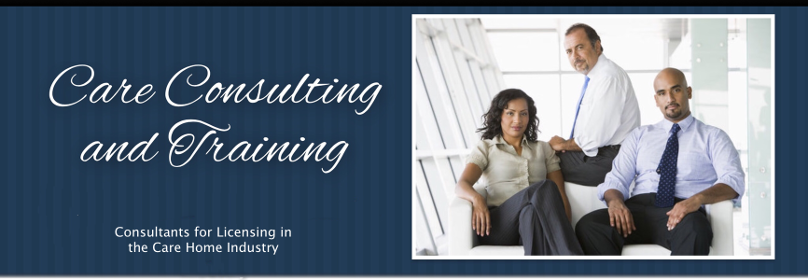Care homes for the elderly or disabled have a promising future due to aging populations, the trends in closure of the more expensive nursing home model, and the growing desire for people to be cared for in the most home-like settings. It has become a growth industry.

But, a growing demand combined with a desire to serve it are not enough for you to enter and succeed in this industry. You must be licensed by the state in which the care home is located, and each state has a litany of requirements for your home to be licensed.
Do your research. Know what types of care homes can be licensed where you are considering starting one. Know what kind of care is required for your residents. Know the home requirements, the staffing requirements, the time from submitting your license application and materials to, if all is done right, when you are licensed and can open your care home. Get a good idea of the financial requirements, including the cost of purchasing/leasing and (likely) modifying a home, establish a financial reserve, project your likely projected revenues and expenses, and other impacts on financing the business. Perhaps most of all, do the necessary research — visit current care homes, talk to residents, owner/operators — to gain an understanding of what it takes to start and run a successful care home.
Pick your state. The state you in which you live is not necessarily the state you want for your care home. State-by-state variations in the stringency of requirements for licensing, moratoriums on certain new care home types*, complexity of the licensing process, local demand for care homes, and other key factors can and do often cause care home providers to license in a different state.
(*e.g., Massachusetts adult foster homes, six month moratorium starting 4/1/2017)
Pick your care home type. Personal care homes, group homes, adult family homes, adult foster care, assisted living facilities, residential healthcare facilities — there are many types of homes, each with its own set of requirements for the facility, its licensing, staffing, operations.
- Adult or youth.
- Seniors
- Developmentally disabled or intellectually disabled
- Medicaid certification or accepting Medicaid waiver patients
The home type you may choose, the type of residents and their needs, where the home may be located are all influenced by requirements at the state, county, and municipal levels. The requirements for licensing, oversight, ongoing regulation, even the definitions of home types states may license — can vary dramatically. Some states mandate that you have a home purchased/leased before you get licensed, while others require you to wait. Some counties/municipalities require an architect to submit a floor plan. Some counties and municipalities require water/sewer to be connected to the city system and may reject homes on well/septic systems. Depending upon the size and type of the home, some states/counties/municipalities may require a sprinkler system. DON’T buy a care home without knowing the requirements.
Get the right staff. The type of care home, its residents, and the services provided to them require appropriate staffing. Know how many staff you need and their required background/skills/experience.
Pay attention to details. Licensing offices are rarely forgiving — miss a required form or fill it out incorrectly and it may delay your licensing or even hurt your chances to get licensed. It is therefore critically important to pay attention to the regulations regarding:
- Home type, location
- Staff qualifications
- Filing deadlines.
- Required applications and supportive documents.
Factors to watch out for.
Financial reserves. Most states have a minimum financial reserve (reserve funds or a line of credit) to ensure normal operations and care of residents in the event of a drop in revenues, sudden unexpected expenses, or both. For some states, the reserve is three months’ expenses. For others, it’s one month, while others have a reserve based on your submitted pro forma operating budget. The financial reserve is a major stumbling block for many.
Zoning. Counties and municipalities dictate whether your planned care home can operate at that location. While care homes may be viewed by zoning board more favorably than other businesses (with store fronts, business hours, etc.), you need to ensure that your care home has zoning approval.
Resident limits. States have upper and/or lower limits on the number of residents allowed in each facility type. Some states also let you have a maximum number of residents (usually 2) without needing any licensing.
Other requirements.
- The owner/operator may need to attend a state-mandated orientation or course.
- State construction requirements.
- A detailed business plan and pro forma financials may be required.
Care Consulting and Training
…Licensing in the Care Home and Group Home Industry

